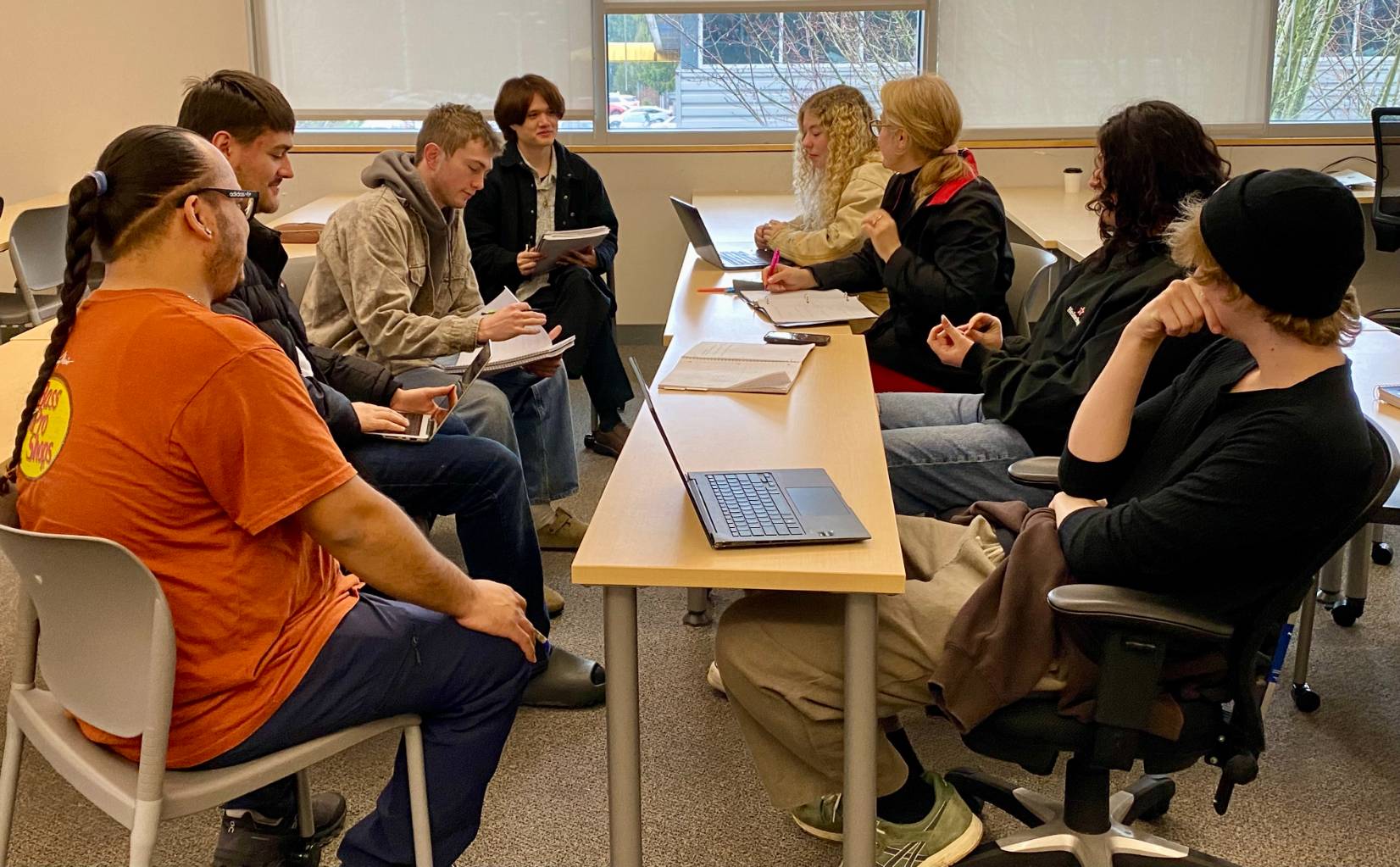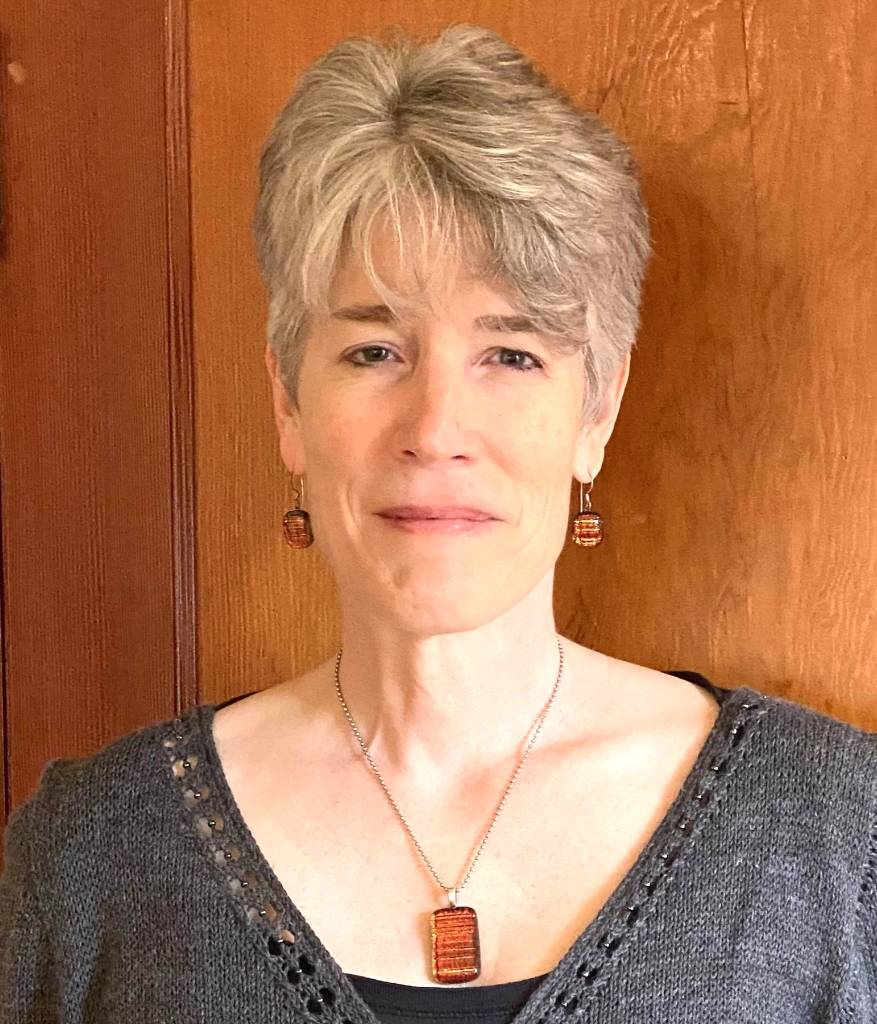The Daily Juggle: Meet Oregon’s Community College Accounting Students
May 01, 2025
• Many own small businesses including food carts, bookkeeping, and camping trailer construction. One has worked as a professional musician for two decades.
• Several hold bachelor’s in other disciplines, and one has an MBA.
• Many have volunteered, including with CashOregon, as income tax preparers.
• One is still in high school.
• They work full-time, many with two or more children.
• Several are currently bookkeepers at local nonprofits.
• One grew up traveling with carnivals!
As public accounting explores more ways to nurture the next generation of accountants, it’s heartening to know that there is a bounty of expertise and determination in Oregon’s community college accounting classrooms. Understanding the challenges these students face, their creative solutions for these struggles, and how the community can network with them will help the accounting industry to better access this great pool of talent.

Student challenges
While the exact number of accounting students is unknown, there are nearly 8,000 students studying business in Oregon community colleges. Of these students, 30% are over the age of thirty, 55% are independent of their parents, and around half work full-time. They are also pioneers in their families because the majority of them are first-generation college students.
Their real-world experience is best described in their own words:
“People assume community college students are less prepared, but many of us are already working professionals juggling careers, families, and education. We bring adaptability, time management, and real-world problem-solving skills.”
“My daily juggling includes owning and operating my own food cart, managing a team, budgeting, shopping, cooking, and logging into class to engage with my peers.”
Despite the valuable skills gained from their lived experiences, students face barriers with the current public accounting recruitment model. Over the past decade, public accounting has increasingly used complex recruiting processes that open doors to internships and ultimately, permanent positions. Many recruiting events and internship commitments begin as early as sophomore year--often before community college students have even transferred to a university. If on-campus recruiting events don’t include local community colleges, students may miss out entirely. Thankfully, more firms are increasing their outreach in a variety of ways, such as virtual events that include community college students, and these firms are seeing the benefits of connecting with community college talent. Another challenge is the internship model itself. Since over 50% of Oregon community college students support themselves working full time, half can’t participate in traditional internships without jeopardizing their economic security and ability to stay on track with their remaining education. Students’ reflections on possible solutions for this include:
“Community college students balancing work and family would benefit most from flexible early engagement—virtual mentorships, project-based work, and hybrid networking—
offering meaningful industry connections without the limitations of traditional internships.”
“Networking events during business hours don’t work for students balancing jobs, school, and families. Virtual mentorships, evening meetups, and project-based opportunities
would make it easier for us to connect with professionals.”
Opening students’ pathways to public accounting
Community college students often use innovation and resilience to find creative avenues to network, build careers, and overcome challenges. This can open up opportunity for potential employers as well. For example, PCC students have practical knowledge through accounting coursework such as the principles of accounting series, accounting applications (QuickBooks), payroll accounting, spreadsheet and data analytics, and income tax preparation using professional tax software. On top of that, many have years of customer service experience in retail and food service. They gravitate towards “earning and learning,” but need the earning element to be economically sustainable. PCC’s career specialists work closely with students to help them find entry-level roles like accounts payable to get their feet in the door and gain skills. Accounting firms with paraprofessional positions have also given PCC students the opportunity to work alongside CPAs while easing the firms’ labor challenges.
Another successful model to help students gain work experience is MFS CashOregon in Portland, which has a long history of welcoming and investing in college students through the VITA (Volunteer Income Tax Assistance) program. In 2023, thanks to a grant from the Oregon Department of Human Services, MFS CashOregon expanded its outreach with paid student internship positions. While the VITA experience is intensive, PCC students with full-time work and families are taking advantage of this opportunity because the training and work take place in evenings and weekends which align best with their busy schedules. PCC accounting alums have consistently stated that MFS CashOregon was the most impactful and rewarding experience launching their careers.
PCC accounting students also seek to combine career technical skills with professional certifications providing industry verification of these skills. PCC offers the 80-hour Basic Tax Course required for Oregon’s tax preparer certification and many accounting students elect to take this course and sit for the rigorous state exam. Tax students have even expressed interest in expanding PCC’s offerings to include partnership and corporate taxation courses, allowing them to become certified enrolled agents and increase their employability.
As students press forward into the accounting profession and work towards transferring to a four-year university, networking becomes critical. In response to the pandemic and students’ heightened concerns about making connections, the accounting faculty introduced both the Accountlandia hub and a student accounting club two years ago. Accountlandia is a website of academic and accounting resources, including a weekly newsletter and podcast series that help students build connections and confidence. The PCC accounting club is student-led and invites members of the accounting community to speak on topics from recruiting to forensic accounting to working for the Internal Revenue Service. Nearly all events are offered virtually to promote student access. Students say these programs have built their sense of belonging in college and in the field of accounting.
All these examples illustrate how community college accounting students are ready to engage with their chosen profession. The nature of their lives requires innovative approaches by students, faculty, and employers, but the results are impressive.
How to work with your local community college
Faculty also know the benefits of networking with their community and appreciate conversation and collaboration with accounting professionals. There are many community college accounting programs throughout Oregon and contact and partnership information for the faculty can be accessed by reaching out to the business program. In addition, some community colleges have advisory committees of industry experts for each of their career technical programs and actively seek members to provide feedback about topics including emerging trends, labor needs, and curriculum recommendations. Not all community colleges use networked career platforms like Handshake, but most have job boards for their students through their career centers and encourage employers to share opportunities.
Community college accounting students bring exceptional determination, practical skills, and adaptability to the table. They manage demanding lives with grace and persistence, developing strengths and skills that are directly transferable to the accounting industry. Recruiters, employers, and accounting firms who connect with community colleges will find skilled, motivated students who are ready to contribute meaningfully to the accounting profession.
Cynthia Killingsworth has eighteen years’ experience as an accounting instructor at Portland Community College. Previously she worked ten years in public accounting, eight as a revenue agent and criminal investigator with the IRS, and interned with the Washington State Auditor’s Office.
Sources for data:
Oregon Higher Education Coordinating Commission Community College Dashboard
• Nearly 8,000 business students
• 33% Pell recipients
• 48% 25+
Community College Research Center
Student demographics:
• 55% are financially independent of parents
• 41% of undergraduates are at community colleges
• Almost three quarters work and 46% work full-time
• 80% want to transfer to a university, but only 31% actually do within 6 years
• 45% are first-generation students
Guided Pathways
PCC Institutional Effectiveness Data for business students
• 30% 30+
• 58% first-generation college students
• 50% work full-time
Inside Higher Ed
• Recovery from an extended period of enrollment declines across the nation, with an increased interest in certification programs
• Accountlandia site contact: cynthia.killingsworth@pcc.edu
• PCC Accounting Club contact: teresa.langford@pcc.edu
• PCC “Hire a Panther” job board
• MFS Cash Oregon



